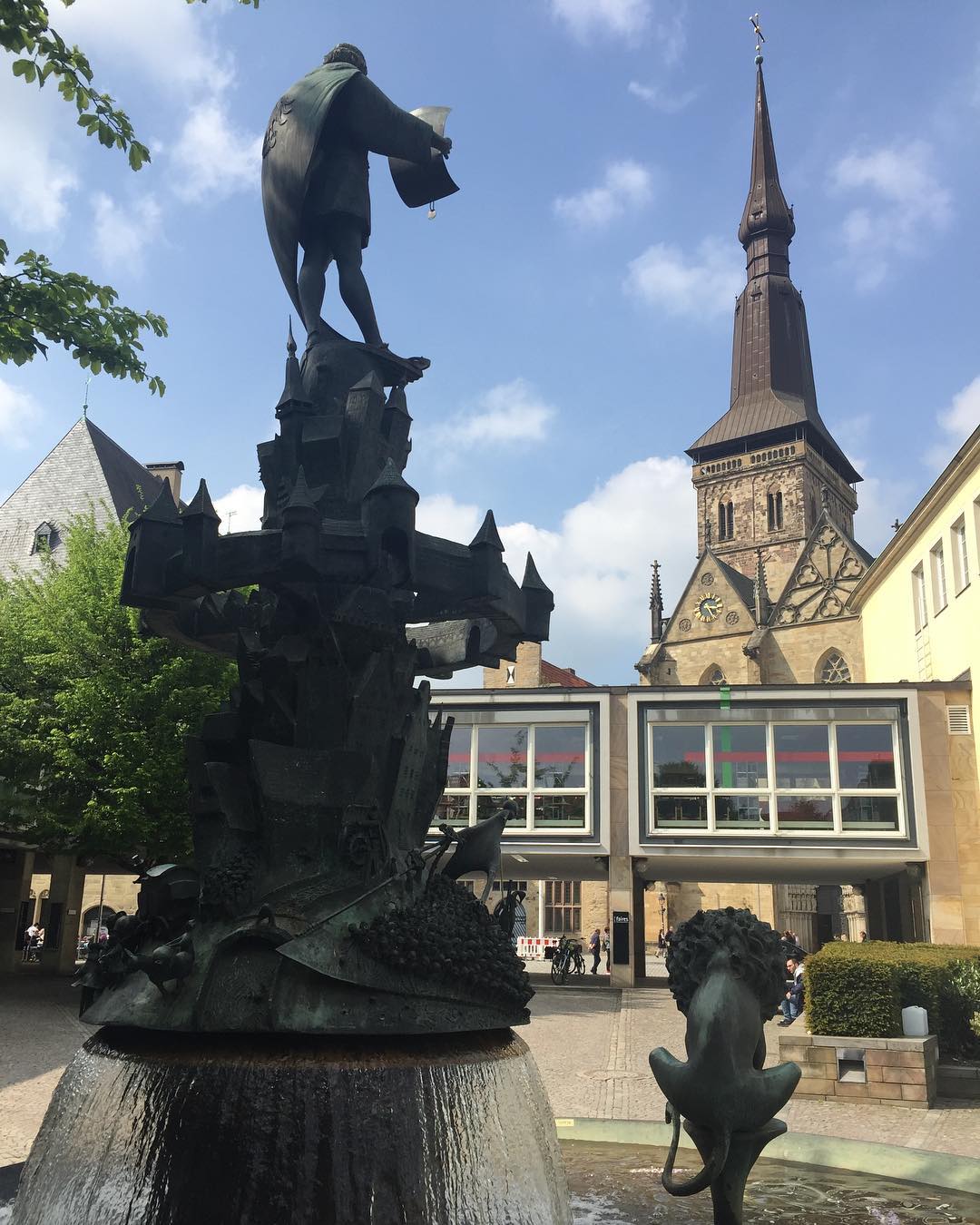Dr. Kristalyn Shefveland is an Associate Professor of History at the University of Southern Indiana.

During the University of Osnabrück’s Spring semester, Dr. Kristalyn Shefveland co-taught a course with Dr. Peter Schneck, an associate professor in Osnabrück’s American Studies department. They came together to offer a workshop-style seminar on “Writing the Colonies: Early American Textualities,” working with students in the fields of history, literature, political science, and American studies.
Colonial American writing in the 17th and 18th Century embraced a stunning diversity of forms and functions – from private letters, diaries, and memoirs to official historiographies sponsored by the church and the state, from religious tracts to administrative and legal documents, from business ledgers and trade documents to established literary genres like poetry or satire.
 To achieve their goal of viewing colonial writing as a field of overlapping discourses, Dr. Shefveland and Dr. Schneck had students read and discuss a selected group of texts and excerpts from various genres and fields of colonial writing in an effort to better understand their correspondence and relevance to the experience and management of coloniality. The sources they used are directly related to Dr. Shefveland’s own research and her first book, Anglo-Native Virginia, to teach students the art of reading a primary source and to encourage students to think and read as a 17th -18th century reader would about a document.
To achieve their goal of viewing colonial writing as a field of overlapping discourses, Dr. Shefveland and Dr. Schneck had students read and discuss a selected group of texts and excerpts from various genres and fields of colonial writing in an effort to better understand their correspondence and relevance to the experience and management of coloniality. The sources they used are directly related to Dr. Shefveland’s own research and her first book, Anglo-Native Virginia, to teach students the art of reading a primary source and to encourage students to think and read as a 17th -18th century reader would about a document.
Students worked on annotating the sources and connecting them to their broader understanding of the world, much like a commonplace book would act not only as a piece of literature but as a diary or journal. Dr. Shefveland had the chance to give two lectures while abroad: one in Osnabrück regarding her research on women in colonial Virginia, and another at the University of Paris-8 with her colleague, Dr. Bertrand Von Ruymbeyke, about the indigenous slave trade.
 Also, during her stay in Osnabrück, Dr. Shefveland conducted research related to her scholarship and teaching on Native American and Indigenous Studies by participating in a roundtable discussion regarding the film Forget Winnetou (a documentary by Indigenous activist and filmmaker, Red Haircrow), about the lasting legacy of the 19th century German writer, Karl May. Thanks to May’s series of popular novels, German popular culture has embraced stereotypes of Native Americans that continues to this day.
Also, during her stay in Osnabrück, Dr. Shefveland conducted research related to her scholarship and teaching on Native American and Indigenous Studies by participating in a roundtable discussion regarding the film Forget Winnetou (a documentary by Indigenous activist and filmmaker, Red Haircrow), about the lasting legacy of the 19th century German writer, Karl May. Thanks to May’s series of popular novels, German popular culture has embraced stereotypes of Native Americans that continues to this day.
Because part of Dr. Shefveland’s more recent scholarship focuses on cultural memory of a colonial past, she considered the opportunity to teach in the classroom and participate in the Karl May exhibit at the Felix Nussbaum-Haus/Kulturegeschichtliches Museum “a great honor.” She added, “This was an extraordinary opportunity to share my research and knowledge with my colleagues at the University [of Osnabrück] and to work with a dynamic group of German students. Dr. Schneck and I share many research interests and his expertise in Literature has already proven to be an excellent complement to mine in Ethnohistory. It is my hope that we can collaborate again in the future… we have already picked out a 17th century English play that we would like to examine together.”